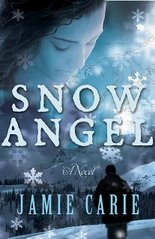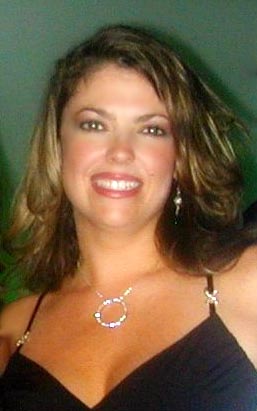
 Next Up in our RITA Nominated Interviews!
Next Up in our RITA Nominated Interviews!Introducing Deanna Raybourn - Author of Silent in the Grave!
How did you get started in the publishing business?
Slowly. I wrote my first novel when I was 23. I did not sell Silent in the Grave until I was 37. In between were six or seven other novels that live quietly in a box in the attic, and we won’t even talk about how many rejection letters I got. But when MIRA bought Grave they bought two sequels as well, so overnight I went from being a girl who couldn’t get a second look from the publishing industry to a writer with a multibook deal. It was terrifying and wonderful, and I still haven’t quite recovered.
Any surprises? Biggest challenge so far?
My biggest fear as a writer was having to write a book I’d already been paid for. I was terrified. But when my agent sold Silent in the Grave, she might have accidentally given the impression I was a teeny bit further along with the sequel than I actually was. I had a very short time to finish it, and for six weeks after I signed the contract, I was paralyzed with fear. Then I looked at the calendar and nearly infarcted on the spot. I sat down and wrote like a demon for the next few months. After that I had to learn how to revise because I had never revised anything in my entire life, not a paper, not a book, not a paragraph. My editor was very tough, and incredibly good. She pushed me just far enough to get my best and not so far that I curled up fetal under the bed. Writing the third book was infinitely easier and more enjoyable!
What is the best part of being a novelist?
Readers! I love hearing from people who have been immersed in the world I’ve created and didn’t want to leave. The most touching response I have received was from a young woman who was flying home for a funeral and found my second book in the airport bookstore. She read it on the flight and said that for a few hours she forgot why she was traveling. That is hugely gratifying. To know that you can make someone’s day a little bit better, whether they are sick or bored or grieving or stressed out, means that what we do matters. Sometimes it’s easy to forget that when you’re sitting alone in front of the computer in your nightgown!
What’s the average day in the writer’s life look like for you? Are you scheduled and organized or are you more the “fly-by-the-seat-of-your-pants” type?
I am an organized pantser. My methods are hugely idiosyncratic. What works for me probably wouldn’t work for anyone else. When I start a book, I know precisely where I’m going—just not how I’m going to get there. I have a very general outline scrawled on huge pieces of art paper and taped to the wall. I work my way from point to point. I start at about nine in the morning because that’s when my energy is highest and when the house is quiet. I work for two or three hours, no more. I have a page minimum when I first start a book, then a page maximum toward the end. Those guidelines force me to keep my pacing even. Otherwise I would rush toward the payoff at the end! When I’m through writing for the day, I still spend a lot of time thinking about the book, and often I find I “see” a scene the next morning when I’m drifting between sleeping and waking. It’s always the scene I’m getting ready to write, so often when I work it’s like taking dictation from myself. For me, the time I spend not writing, when I’m just noodling over the book in my head, is just as important as the time I am physically at the computer, pounding the keyboard. I also write every day when I’m working through a draft—no exceptions. I will take several weeks off between drafts, but when I am fully engaged in a book, I don’t want to be away from it.
What are your inspirations for your stories? Any tips and tricks for someone who is stuck?
Inspiration comes from a snippet of something I’m reading—a biography or a journal, an obscure fact, a forgotten mystery. Then I start playing the “what if” game and change everything, twisting and turning until I have something approaching a plot. From there I might think about the sort of people who would be involved in a situation like the one I’ve created, or a setting which would be unusual or provocative. As far as being stuck, the best tip is not to let yourself get there in the first place, and I don’t mean that to sound flippant. The most effective way to deal with block is preventive. I work every day, at the same time, for the same length of time. I always end a scene or a chapter with some sort of hook that will make the reader excited about turning the page, but it also helps to keep me excited about writing the next page. People talk a lot about inspiration and the muse, but in my experience, discipline counts for just as much.
Have you had a mentor, critique group or teacher that has helped you get where you are today? Have you been a mentor to someone else?
I don’t use critique groups, ever. They are divine for some people, but I just don’t work that way. My editor has been a tremendous mentor for me—and still is! I am learning incredible things from her, and over the course of three books I can already see how she is shaping my fiction to be the best it can be. I would love to put together a workshop to share what I’ve learned about the process so far. I’m thinking Morocco in 2009!
What does it mean to you to be nominated for a RITA award? How did you feel when you got the call? And what do you think the RITA means for the romance novel genre?
I was hugely thrilled and very honored to be nominated for two RITA Awards. When I got the call that I was nominated for Best Novel with Strong Romantic Elements, I was delighted. About an hour later I got the second call, and I thought they had made a mistake! I thought it was just a repeat of the first call until she said, “Best First Novel”, and then I about hollered down the house. I made her repeat it to me—I just could not believe I was nominated in two categories. It is just such a gracious welcome by the RWA family. My books tiptoe down the line of what a romance novel traditionally is, so to be nominated felt like RWA was saying, “We like you anyway!” It was a complete Sally Field moment.
What are you wearing to the RITA Awards Ceremony in San Francisco? (LOL) Do you have the dress picked out? Any stories?
You will have to wait and see! (That sounds like I’m trying to create suspense, but really I just haven’t shopped yet!) They just did a gorgeous cover shoot for the mass market release of Silent in the Sanctuary and if I could get my hands on the black corset dress they commissioned for it, I would wear that!
Are you preparing a speech in case you win?
No. If I win, my hands will be shaking so hard, I would tear the paper before I got to read it. I prefer the heartfelt, off-the-cuff speeches anyway.
Congratulations on your RITA nomination. Any last thoughts?
Thanks for having me!











.jpg)






